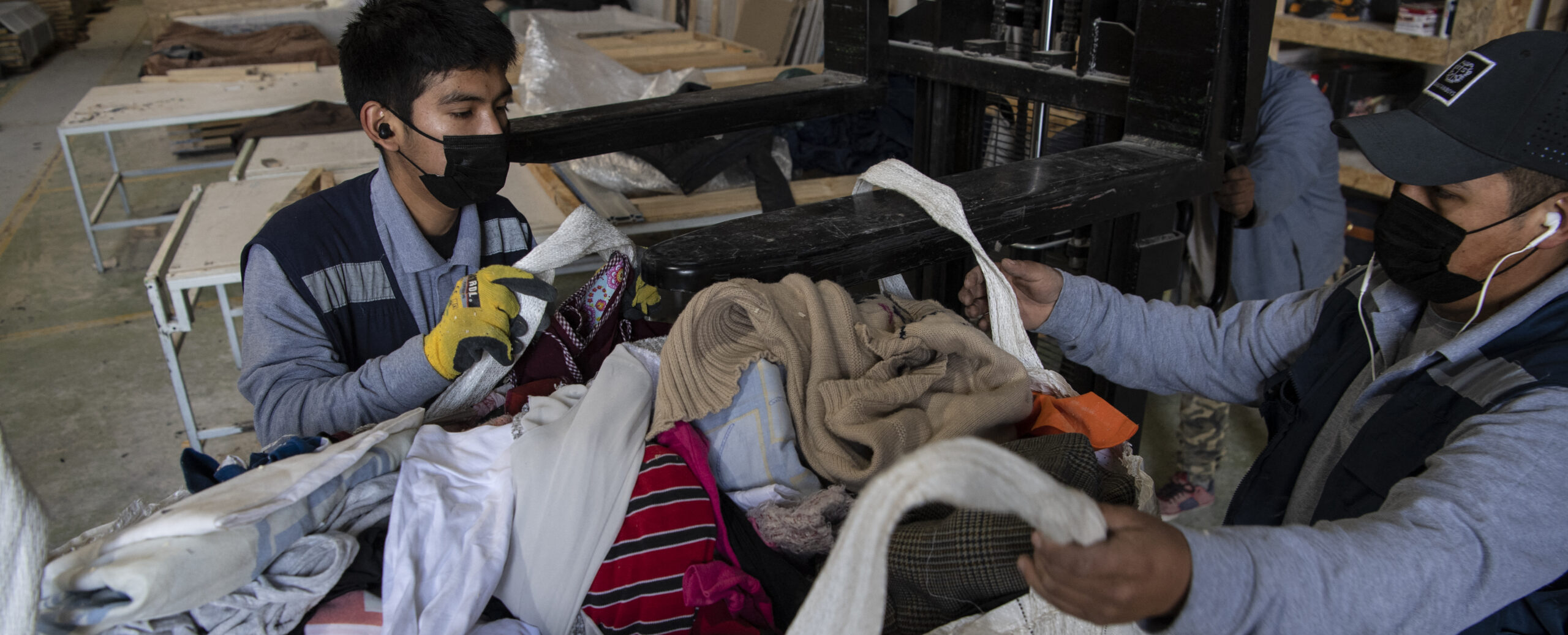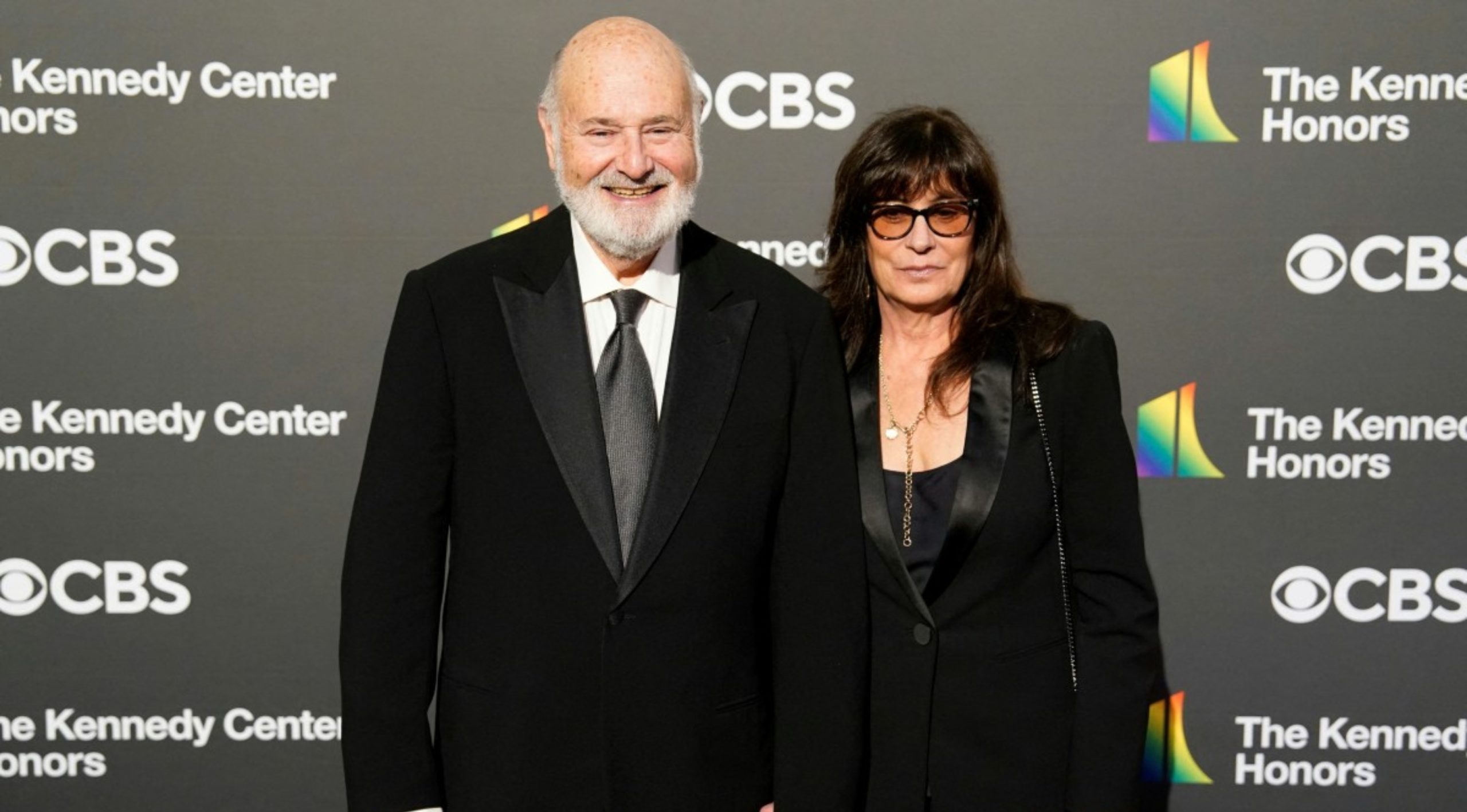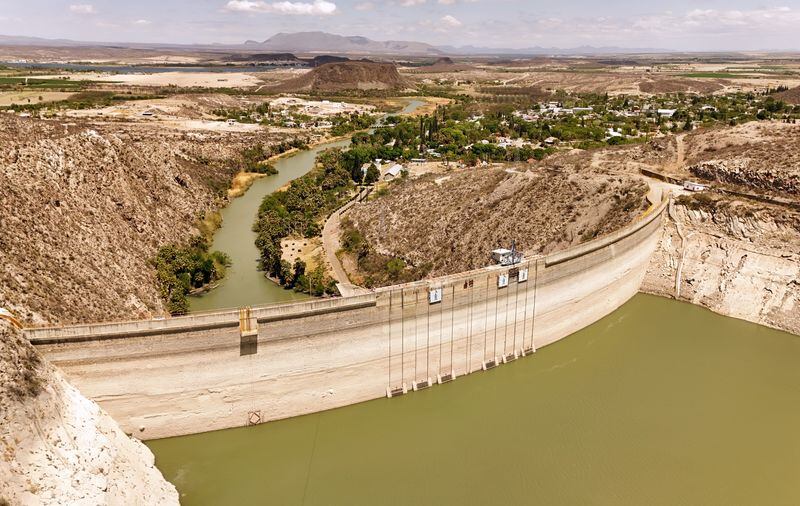International
Chile’s desert dumping ground for fast fashion leftovers

AFP
A mountain of discarded clothing including Christmas sweaters and ski boots cuts a strange sight in Chile’s Atacama, the driest desert in the world, which is increasingly suffering from pollution created by fast fashion.
The social impact of rampant consumerism in the clothing industry — such as child labor in factories or derisory wages — is well-known, but the disastrous effect on the environment is less publicized.
Chile has long been a hub of secondhand and unsold clothing, made in China or Bangladesh and passing through Europe, Asia or the United States before arriving in Chile, where it is resold around Latin America.
Some 59,000 tons of clothing arrive each year at the Iquique port in the Alto Hospicio free zone in northern Chile.
Clothing merchants from the capital Santiago, 1,800 kilometers (1,100 miles) to the south, buy some, while much is smuggled out to other Latin American countries. But at least 39,000 tons that cannot be sold end up in rubbish dumps in the desert.
“This clothing arrives from all over the world,” Alex Carreno, a former employee in the port’s import area, told AFP.
“What is not sold to Santiago nor sent to other countries stays in the free zone” as no one pays the necessary tariffs to take it away.
“The problem is that the clothing is not biodegradable and has chemical products, so it is not accepted in the municipal landfills,” said Franklin Zepeda, the founder of EcoFibra, a company that makes insulation panels using discarded clothing.
“I wanted to stop being the problem and start being the solution,” he told AFP about the firm he created in 2018.
– Water waste –
According to a 2019 UN report, global clothing production doubled between 2000 and 2014, and the industry is “responsible for 20 percent of total water waste on a global level.”
To make a single pair of jeans requires 7,500 liters (2,000 gallons) of water.
The same report said that clothing and footwear manufacturing contributes eight percent of global greenhouse gases, and that “every second, an amount of textiles equivalent to a garbage truck is buried or burnt.”
Whether the clothing piles are left out in the open or buried underground, they pollute the environment, releasing pollutants into the air or underground water channels.
Clothing, either synthetic or treated with chemicals, can take 200 years to biodegrade and is as toxic as discarded tires or plastics.
Not all the clothing goes to waste: some of the poorest people from this region of 300,000 inhabitants pick through the dumps to find things they need or can sell in their local neighborhood.
Venezuelan migrants Sofia and Jenny, who crossed into Chile only a few days earlier on a 350-kilometer journey, search through a clothing pile as their babies crawl over it.
The women are looking for “things for the cold,” given the desert’s nighttime temperatures drop to levels unheard of in their tropical homeland.
– Changing attitudes –
Chile, the richest country in South America, is known for the voracious consumerism of its inhabitants.
Fast fashion advertising “has helped to convince us that clothing makes us more attractive, that it makes us stylish and even cures our anxiety,” said Monica Zarini, who makes lamp shades, notebooks, containers and bags from recycled clothing.
Things are changing, though, according to Rosario Hevia, who opened a store to recycle children’s clothes before founding in 2019 Ecocitex, a company that creates yarn from pieces of discarded textiles and clothing in a poor state. The process uses neither water nor chemicals.
“For many years we consumed, and no one seemed to care that more and more textile waste was being generated,” she said.
“But now, people are starting to question themselves.”
International
Police investigate deaths of Rob Reiner and wife as apparent homicide

The Los Angeles Police Department (LAPD) is investigating the deaths of Hollywood actor and filmmaker Rob Reinerand his wife as an “apparent homicide,” amid a wave of tributes to the director of classics such as When Harry Met Sally.
According to U.S. media reports on Sunday, Rob Reiner and Michele Singer Reiner were found dead at their Los Angeles mansion with what appeared to be stab wounds.
Several political figures shared messages of condolence following the reported deaths of the director of A Few Good Menand his wife.
While the LAPD did not officially confirm the identities of the victims, it stated that homicide detectives were dispatched to the Reiner residence.
“At this time, no additional details are available and the investigation into an apparent homicide is ongoing,” the Los Angeles Police Department said in a statement posted on social media.
LAPD Deputy Chief Alan Hamilton told reporters that no arrests have been made and that no individuals are currently being questioned as suspects.
“I’m not going to confirm whether anyone is being questioned at this moment or not. We are going to try to speak with as many family members as we can,” Hamilton said.
CNN reported that a family spokesperson confirmed the deaths of Reiner and his wife.
California Governor Gavin Newsom, former U.S. President Barack Obama, and former Vice President Kamala Harrisissued statements expressing their condolences.
International
U.S. and Mexico Reach Deal to Address Water Deficit Under 1944 Treaty

The United States and Mexico have reached an agreement to comply with current water obligations affecting U.S. farmers and ranchers and for Mexico to cover its water deficit to Texas under the 1944 Water Treaty, the U.S. Department of Agriculture said in a statement.
The department уточified that the agreement applies to both the current cycle and the water deficit from the previous cycle.
On Monday, U.S. President Donald Trump accused Mexico of failing to comply with the water-sharing treaty between the two countries, which requires the United States to deliver 1.85 billion cubic meters of water from the Colorado River, while Mexico must supply 432 million cubic meters from the Rio Grande.
Mexico is behind on its commitments. According to Washington, the country has accumulated a deficit of more than one billion cubic meters of water over the past five years.
“This violation is severely harming our beautiful crops and our livestock in Texas,” Trump wrote on Monday.
The Department of Agriculture said on Friday that Mexico had agreed to supply 250 million cubic meters of water starting next week and to work toward closing the shortfall.
Agriculture Secretary Brooke Rollins, quoted in the statement, said Mexico delivered more water in a single year than it had over the previous four years combined.
Trump has said that if Mexico continues to fall short of its obligations, the United States reserves the right to impose 5% tariffs on imported Mexican products.
Mexico’s Deputy Foreign Minister for North America, Roberto Velasco, said that a severe drought in 2022 and 2023prevented the country from meeting its commitments.
International
Several people shot in attack on Brown University campus

Several people were shot on Saturday in an attack on the campus of Brown University, in the northeastern United States, local police reported.
“Shelter in place and avoid the area until further notice,” the Providence Police Department urged in a post on X. Brown University is located in Providence, the capital of the state of Rhode Island.
U.S. President Donald Trump said on his social media platform Truth Social that he had been briefed on the situation and that the FBI was on the scene.
At 5:52 p.m. local time (11:52 p.m. GMT), Brown University said the situation was still “ongoing” and instructed students to remain sheltered until further notice.
After initially stating that the suspect had been taken into custody, Trump later posted a second message clarifying that local police had walked back that information. “The suspect has NOT been apprehended,” the U.S. president said.
-

 International4 days ago
International4 days agoWashington declares State of Emergency as atmospheric river brings severe flooding
-

 International4 days ago
International4 days agoU.S. to require five-year social media history from tourists under Visa Waiver Program
-

 International3 days ago
International3 days agoCuba battles out-of-control dengue and chikungunya epidemic as death toll rises to 44
-

 Central America3 days ago
Central America3 days agoHonduras election crisis deepens as CNE president denounces intimidation attempts
-

 Central America4 days ago
Central America4 days agoOAS and EU urge honduran political actors to respect vote results and avoid unrest
-

 International3 days ago
International3 days agoColombia says it would not reject Maduro asylum request as regional tensions escalate
-

 International2 days ago
International2 days agoSeveral people shot in attack on Brown University campus
-

 International3 days ago
International3 days agoEcuador on track for record violence as homicides hit highest level in Latin America again
-

 International4 days ago
International4 days agoSix ecuadorian soldiers jailed pending trial for alleged extrajudicial execution
-

 International2 days ago
International2 days agoU.S. and Mexico Reach Deal to Address Water Deficit Under 1944 Treaty
-

 Central America12 hours ago
Central America12 hours agoPanama seizes over three tons of drugs hidden in Caribbean port container
-

 International7 minutes ago
International7 minutes agoPolice investigate deaths of Rob Reiner and wife as apparent homicide
-

 Central America10 minutes ago
Central America10 minutes agoOAS urges swift recount in Honduras as election results remain uncertain


























